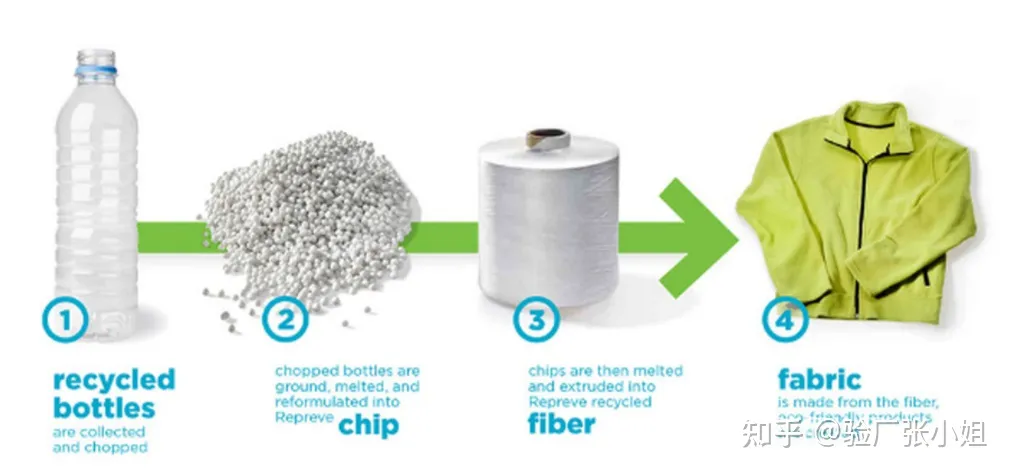GRS certification is an international, spontaneous, and complete standard that examines a company’s product recovery rate, product status, social responsibility, environmental protection, and chemical restrictions through third-party certification. It is a practical industrial tool.
Applying for GRS certification must meet the five major requirements of traceability, environmental protection, social responsibility, recycling label and general principles.
Global recycling standards apply to any product containing at least 20% recycled material. Starting from the recycling stage, each production stage must be certified and ultimately ends with the final seller in a business-to-business transaction. Material collection and material concentration locations are subject to self-declaration, document collection and on-site visits.
Although GRS certification is currently mainly focused on the textile and apparel industry, it is not limited to a certain industry. Any recyclable material, metal, ceramic, wood, is applicable as long as the product meets the entry threshold of containing at least 20% recycled material. That is, the standard can be used with any recycled input material and can be applied to any supply chain.
01Certificate cycle and audit form
The GRS certificate is valid for one year, and a renewal audit for the next cycle needs to be arranged before expiration.
GRS certification is mainly based on on-site audits. The occasional remote audits need to be judged according to TE’s operating guidelines and can only be carried out if appropriate.
Certification types include single-site certification and multi-site joint certification. If we need to carry out joint certification, we need to collect company information first and evaluate it according to TE’s rules. If the corresponding requirements are met, joint certification can be carried out.
At present, many foreign brands are focusing on recycled plastics.
Starbucks
Starbucks, the world’s largest coffee chain giant, announced that it will completely eliminate single-use plastic straws in 2020 and replace them with recyclable cold drink lids similar to the lids of children’s drinking cups.
By 2020, more than 28,000 Starbucks stores around the world will stop using disposable straws, which is expected to save 1 billion plastic straws every year.
McDonald’s
McDonald’s said it will begin testing in designated stores this year to find alternatives to disposable straws for customers, and will provide degradable paper straws to customers in the UK in 2019. Last May, approximately
02Enterprises applying for GRS certification need to provide documents before review:
1) Certification application form
Enterprises fill out the application form according to their actual situation. The application form information includes but is not limited to the company name, address, contact person and contact information, as well as specific product information related to recycled materials, etc. The company needs to check the options according to its own situation. If the production process is outsourced, the company also needs to inform and provide relevant information of the outsourcer in the application form.
2) Business license
The business license is the most basic government document and is believed to be a necessary document for all certification projects.
3) SC/TC/RMD certificate of upstream supplier
If materials or products are purchased by factories/traders from upstream suppliers, the certification application company needs to provide the SC certificate (i.e. GRS scope certificate) or TC certificate (i.e. transaction certificate) of the upstream supplier;
If the recycled materials are generated by the factory itself and will be used in the production process, it does not meet the requirements of GRS;
If the recycling source is direct waste recycling, processing and reuse, it needs to be checked to see if it meets the recycling requirements, and the recycler needs to provide an RMD statement, that is, a recycled material statement.
4) Material balance sheet
This is one of the very special requirements of the GRS certification program.
In layman’s terms, the material balance sheet is a statistical table of all material inputs and outputs used to produce each certified product, including leftover materials, defective products, finished products, etc.
Enterprises applying for certification are usually required to provide a material balance sheet for the most recent year. For enterprises that have not yet made actual purchases, simulation data can be accepted; for factories that have actually produced certified products, they need to provide a material balance sheet of the products that the factory has actually produced.
5) Environmental impact assessment documents and approvals
In addition to recycling, GRS certification standards also include environmental, chemical and other requirements. Environmental impact assessment documents and approvals are important government documents that determine factory production-related processes and environmental requirements.
6) Production management procedure documents or manuals for certified products
This is actually one of the essential documents for all system management. Not only the companies applying for certification, but also the related units of the company that perform related production activities, such as subcontractors and branches that handle certified products, all need to have corresponding program documents for certified products to ensure that each company is related to the certified products. Relevant procurement, inspection, production, packaging, transportation and other links all comply with GRS standard requirements.
Post time: Oct-31-2023
